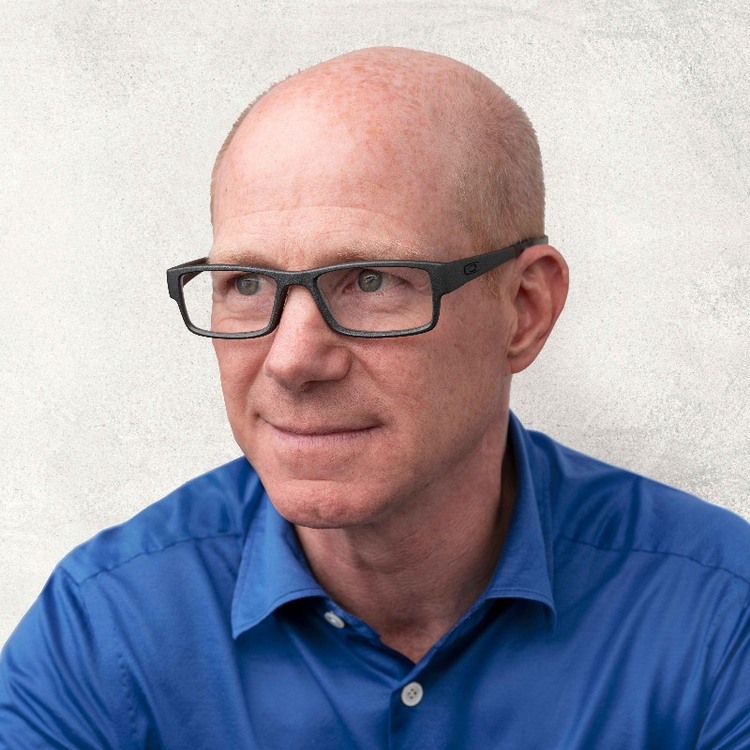Kyndryl Exec On AI Life-Cycle Plans And ‘Secret Sauce’ That’s Winning Over Customers
Kyndryl’s Stephen Leonard talks to CRN about his $16 billion IT services company’s AI life-cycle management strategy, partnering with only 17 vendors and Kyndryl’s market differentiation versus the competition.

“I do like the concept of AI life-cycle management,” said Stephen Leonard, senior vice president of strategic global alliances at Kyndryl.
“We are not doing what most people in the market do today. They segment off parts of the life cycle and they chop them up saying, ‘This one set of people do this. This one set of people do that.’ They separate them for all sorts of reasons,” said Leonard. “We really don’t want to do that. We want to live that AI life cycle with the client. And we want to bring our talent and the culture through that whole life cycle.”
[Related: Kyndryl Builds 6,000-Strong Google Cloud Army To Drive AI]
New York City-based Kyndryl generated $3.9 billion in revenue during its third fiscal quarter of 2023 to achieve an annual run rate of nearly $16 billion.
In an interview with CRN, Leonard talks about Kyndryl’s AI strategy, market differentiation in the IT services market and vendor partner ecosystem, as well as its “secret sauce” that’s winning over customers.
Google Cloud EO Thomas Kurian wants partners like Kyndryl to become AI life-cycle MSPs. Do you think that’s the future of the channel in the AI era?
I do like the concept of AI life-cycle management. The majority of our clients operate in regulated industries. There aren’t going to be legacy regulations around this space in five years, we all know that. There are issues like data sovereignty, personal data protection, etc. and all this legislation is coming in across the world in different places.
For example, some of the resiliency legislation comes down to the data modernization and data platform because you have to be able to account for all your data at any point in time.
From an operator point of view, we believe that by building the things that we’re doing and by taking ownership of that for our client we own the management, operations, running, and security sides for you. That is the life-cycle management piece.
We believe that we also can play a major role in the creation of AI, so the modernizing, the building, etc. So that it is a life-cycle manager.
We’re going to take this client on this journey multiple times as the technologies mature. And as legislations change and regulations come in, as businesses see new opportunities for where they want to go and what direction they want to go in—that’s right at the heart of where we believe Kyndryl adds value.
Then the final thing is talent and culture. We’ve created a new culture. We are managing talent in a very, very different way to the way it was managed before we were Kyndryl.
Click through to read more from CRN’s interview with Kyndryl.

How does Kyndryl’s culture and business strategy give you a leg up over the competition when it comes to AI life-cycle management?
We are not doing what most people in the market do today. They segment off parts of the life cycle and they chop them up saying, ‘This one set of people do this. This one set of people do that.’
They separate them for all sorts of reasons: skill and scale, and other reasons. We really don’t want to do that. We want to live that life cycle with the client. And we want to bring the talent and the culture through that whole life cycle.
So that the person that architected it, the person that built it, and now the people who are going to run it are more or less the same people. There’s a continuity there that is really important. Especially when you come to that, ‘What’s the next life cycle? What’s the next cycle that we’re going on? What’s the next evolution of the technology?’
Technology goes in cycles and what happens is you get stuck in the old world and old technology. Now there’s this huge gargantuan effort to lift and shift and modernize to get to the next technology.
I think one of the values that we get from cloud hyperscalers’ platforms—and Google is exemplary at this—is you get that ability to be able to go through these life cycles a lot faster. It’s a lot quicker as technology gets built on and into the platform to just be agile to explore your data in different ways than you’ve done before. GenAI is a great example of that.
We’ve just been able to pivot very quickly because of where we come from. We sit in that cross-section of where the operational data hits the infrastructure and the application. We sit right at that intersection. So we see both up and down and side to side. That allows us to say, ‘OK, so now you need to bring the next generation of technology in here. This is how do you do that and still meet all your regulatory requirements and still be ready for whatever comes next.’

What is Kyndryl’s secret sauce when it comes to winning customers versus your competitors?
The way we want to present ourselves to our clients is, ‘We are not agnostic. We deeply understand your infrastructure and your application environments. With the technical expertise that we have—both in your existing environment and the technical experience that we’ve built with your platform environment—we can give you a technically informed opinion about how those things come together and how the service can be delivered to you.’
One really important aspect of our secret sauce is we say, ‘By doing this, what we actually do is we co-invest together in taking our technical skills and taking them deeper into the stack of the technology. So that the exploitation of that technology gives the client a faster time to value, a better experience, a better NPS [Net Promoter Score] and, ultimately, a superior ROI.’
I don’t believe you can start by saying to someone, ‘I’ll give you a better ROI.’ I can’t do that unless I give you a better exploitation of the product and give you faster time to value versus my competitors.
Because anyone else can come and say, ‘I can do this with Google.’ There are 100 [Google partners] out there that can do that to a lesser or greater degree. But Kyndryl’s value is, ‘I’m going to go deeper.’
Many customers don’t achieve the benefits they chose their cloud platform for in the first place because other service providers] are not exploiting the capabilities that sit deep in the platform layers. So that’s kind of the value chain that we’re on.

What is Kyndryl’s secret sauce when it comes to the channel and vendor partnerships?
We’re very deliberate on this: We do not want to try and be all things to all people. We don’t believe that we should have a network of hundreds of partners.
We only have 17 global strategic alliances. They have a seat at the table at every C-suite in the world because people are intrigued as to what technologies they’re going to deliver.
We want to have a small network of very large players that are driving technology innovation and driving adoption in the marketplace. We want to pick the areas that we’re good at and partner with the people that we think are industry leading.
Then when the client says, ‘Well, how do I explain it and do it?’ I put my hand up and say, ‘Come to Kyndryl because that’s what we do. Because of my deep partnership with these few companies and the investments that I’ve made, that means we’ve done that work for you.’
We are building mostly around data modernization, enterprise AI, a bit around research and innovation to help customers. Then the final area [where] we’re really trying to leverage AI, like our relationship with Google for example, is around customer satisfaction and trust. Trust is a big element of that.
So those are the areas where we see demand and a lot of synergy with the skills that we can bring and with the clients that we have.

What Google AI technology are you currently using to help Kyndryl customers?
We’ve been working with a manufacturing company in Mexico with Google’s Cortex Framework. We’re integrating that framework into their enterprise ERP data environment.
We’re using Google Cloud to help get a better business decision-making process with a more informed, more real-time, faster business decision-making process.
We’ve also been working with a Singapore-based smart warehouse company. We launched a GenAI pilot in order to improve customer service. That’s not a chatbot, that’s about the supply chain side of the smart warehousing technology that they have. They’re servicing many people with that. So their value is in their supply chain logistics.
So we’re bringing GenAI and Google into how their business operators use GenAI to improve their logistics processing.

Are you bullish about Kyndryl and the economic market in 2024?
We are bullish. I’m very excited about how these partnerships have worked out for us.
We have 4,000 clients in 60 countries, and $16 billion worth of revenue. Two years ago, none of that was going to any of our vendor partners.
As we modernize, bring contemporary capabilities and technologies and all these other things to our clients, our partners are going to benefit too. It’s a whitespace for them that they couldn’t have gotten into before we were Kyndryl.
But now that we’re a partner of [these vendors], they can now access those market opportunities in a different way than they could before. Now we are partners and trying to help clients exploit the technology faster. So not only am I bringing [vendors] into client spending environments that they weren’t in before, I’m going to help the client accelerate their consumption and use of your technology.
It’s a really powerful win-win.